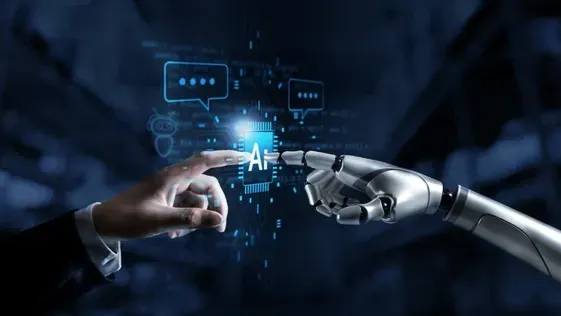
How AI and Automation Are Transforming Local Businesses in 2025
How AI & Automation Are Revolutionizing Local Businesses in 2025
In 2025, AI and automation are transforming the way local businesses operate, driving efficiency, enhancing customer experiences, and boosting profitability. From small retail shops to local service providers, these technologies are no longer exclusive to large corporations. Artificial intelligence and automation tools are empowering local businesses to streamline operations, personalize marketing, and compete in a digital-first world. This article explores how AI and automation are reshaping local businesses, their benefits, challenges, and what the future holds for small enterprises embracing this technological revolution.
Local businesses, once reliant on traditional methods, are now leveraging AI to analyze customer data, automate repetitive tasks, and optimize supply chains. Automation is reducing manual workloads, while AI-driven insights are helping owners make smarter decisions. Whether it’s a café using AI to predict inventory needs or a salon automating appointment bookings, these technologies are redefining success for small businesses in 2025.
The Rise of AI in Local Business Operations
Artificial intelligence is no longer a futuristic concept but a practical tool for local businesses. AI-powered solutions, such as predictive analytics and chatbots, are helping small enterprises stay competitive. For example, AI chatbots handle customer inquiries 24/7, freeing up staff to focus on core tasks. A local bakery might use a chatbot to answer questions about orders or delivery, enhancing customer satisfaction without additional labor costs.
Predictive analytics, another AI application, enables businesses to forecast demand and manage inventory efficiently. A neighborhood grocery store can use AI to predict which products will sell out during peak seasons, reducing waste and ensuring stock availability. According to a 2025 report, businesses using AI analytics see up to a 20% increase in operational efficiency, making it a game-changer for small-scale operations.

Automation Streamlining Daily Tasks
Automation is revolutionizing repetitive tasks for local businesses, saving time and reducing errors. Tools like automated scheduling systems, invoicing software, and inventory management platforms are now accessible to small businesses. For instance, a local gym can use automated scheduling to manage class bookings, send reminders, and process payments, eliminating manual paperwork.
Automation also extends to marketing. Email marketing platforms, powered by automation, allow businesses to send personalized campaigns to customers based on their preferences. A boutique clothing store might use automated emails to notify customers about new arrivals or exclusive discounts, driving sales without constant manual effort. In 2025, automation tools are affordable, with many platforms offering scalable pricing for small businesses.
Enhancing Customer Experiences with AI
Customer experience is a key differentiator for local businesses, and AI is making it easier to deliver personalized services. AI-driven recommendation engines, like those used by online retailers, are now available to brick-and-mortar stores. A local bookstore, for example, can use AI to suggest books based on a customer’s purchase history, creating a tailored shopping experience that rivals e-commerce giants.
Voice assistants and AI-powered kiosks are also gaining traction. A café might install a self-service kiosk that uses AI to recommend menu items based on customer preferences or dietary restrictions. These technologies not only improve service speed but also make customers feel valued, fostering loyalty. In 2025, businesses prioritizing personalized customer experiences are seeing up to a 15% increase in customer retention.
AI and Automation in Marketing Strategies
Marketing is one of the most transformative areas for AI and automation in local businesses. AI tools analyze customer data to create targeted campaigns, while automation ensures these campaigns run seamlessly. For example, a local restaurant can use AI to segment its customer base and send tailored promotions, such as discounts for frequent diners or special offers for first-time visitors.
Social media management tools, powered by AI, help businesses schedule posts, track engagement, and respond to comments in real-time. A small florist can use these tools to post seasonal arrangements on Instagram, analyze which posts drive the most traffic, and adjust their strategy accordingly. In 2025, AI-driven marketing is leveling the playing field, allowing local businesses to compete with larger brands.
Challenges of Adopting AI and Automation
While AI and automation offer immense benefits, local businesses face challenges in adoption. The initial cost of implementing these technologies can be a barrier, especially for businesses with limited budgets. Training staff to use new systems also requires time and resources. For instance, a family-owned hardware store might struggle to integrate an AI inventory system without proper training.
Data privacy is another concern. AI relies on customer data, and businesses must comply with regulations like GDPR or CCPA to avoid penalties. Despite these challenges, many affordable, user-friendly AI and automation tools are designed specifically for small businesses, making adoption easier in 2025.
Real-World Examples of AI and Automation in Action
Local businesses across industries are reaping the benefits of AI and automation. Here are a few examples:
- Retail: A boutique uses AI to analyze purchase trends and automate restocking, reducing overstock by 25%.
- Hospitality: A small hotel employs AI chatbots to handle bookings and answer guest queries, improving response times by 40%.
- Services: A local plumber uses automated scheduling software to manage appointments, increasing daily jobs by 15%.
- Food Industry: A food truck uses AI to predict peak hours and optimize staffing, boosting profits by 10%.
The Future of AI and Automation for Local Businesses
Looking ahead, AI and automation will continue to evolve, offering even more opportunities for local businesses. By 2026, experts predict that over 80% of small businesses will adopt some form of AI technology. Emerging trends include AI-powered virtual assistants for in-store use, automated supply chain management, and hyper-personalized marketing powered by machine learning.
Sustainability is also a focus, with AI helping businesses reduce waste and energy consumption. For example, a local café might use AI to optimize energy use in appliances, lowering costs and environmental impact. As these technologies become more accessible, local businesses will find new ways to innovate and thrive in a competitive market.
How Local Businesses Can Get Started
For local businesses looking to embrace AI and automation in 2025, here are practical steps:
- Identify Needs: Assess which tasks, like scheduling or marketing, could benefit from automation.
- Start Small: Begin with affordable tools like chatbots or email automation platforms.
- Train Staff: Invest in training to ensure employees are comfortable with new systems.
- Monitor Results: Track metrics like sales or customer satisfaction to measure ROI.
- Stay Compliant: Ensure data privacy practices align with regulations.
By starting small and scaling up, local businesses can harness the power of AI and automation without overwhelming their resources. In 2025, these technologies are not just trends—they’re essential tools for staying competitive and meeting customer expectations.
Comment / Reply From
You May Also Like
Popular Posts
Newsletter
Subscribe to our mailing list to get the new updates!





